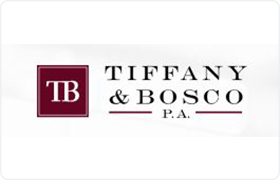Munds Park Landlord-Tenant Lawyer, Arizona
Sponsored Law Firm
-
 x
x

Click For More Info:
-
Tiffany & Bosco, P.A.
2525 East Camelback Road Floor 7 Phoenix, AZ 85016» view mapReal Estate Law Experience. Commitment. Results.
For over 50 years, we have based our legal services on understanding and meeting our clients’ ever-changing legal needs.
800-922-6320
Not enough matches for Munds Park Landlord-Tenant lawyer.
Below are all Munds Park Real Estate lawyers.
Richard J Ruffatto
Criminal, Business & Trade, Construction, Litigation
Status: In Good Standing Licensed: 39 Years
Ronald N Rovey
Real Estate, Trusts, Property & Casualty, Wills & Probate
Status: In Good Standing Licensed: 50 Years
Adrienne C Hanley
Real Estate, Trusts, Property & Casualty, Business & Trade
Status: In Good Standing Licensed: 49 Years
Adrienne C Hanley
Commercial Real Estate, Trusts, Estate, Business
Status: In Good Standing Licensed: 30 Years
Douglas C Fitzpatrick
Real Estate, Trusts, Contract, Personal Injury
Status: In Good Standing Licensed: 47 Years
 Richard Gramlich Phoenix, AZ
Richard Gramlich Phoenix, AZ AboutTiffany & Bosco, P.A.
AboutTiffany & Bosco, P.A. Practice AreasExpertise
Practice AreasExpertise
